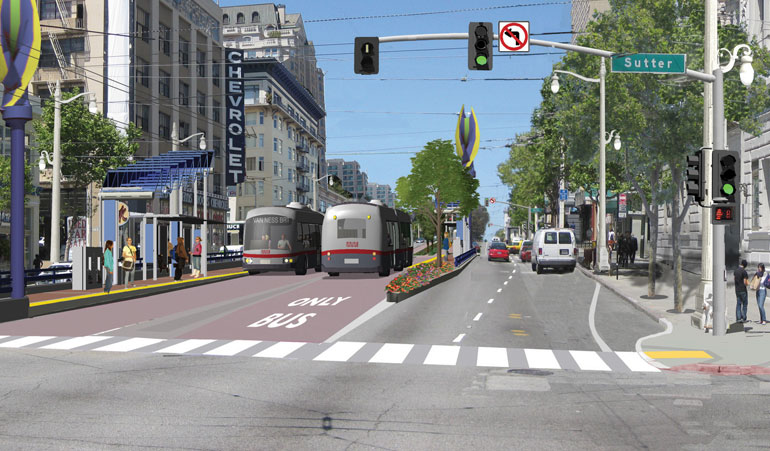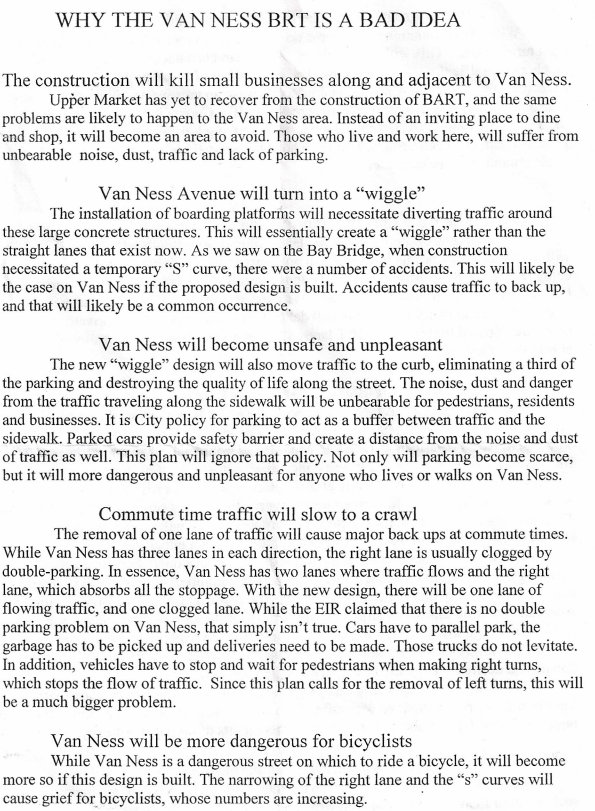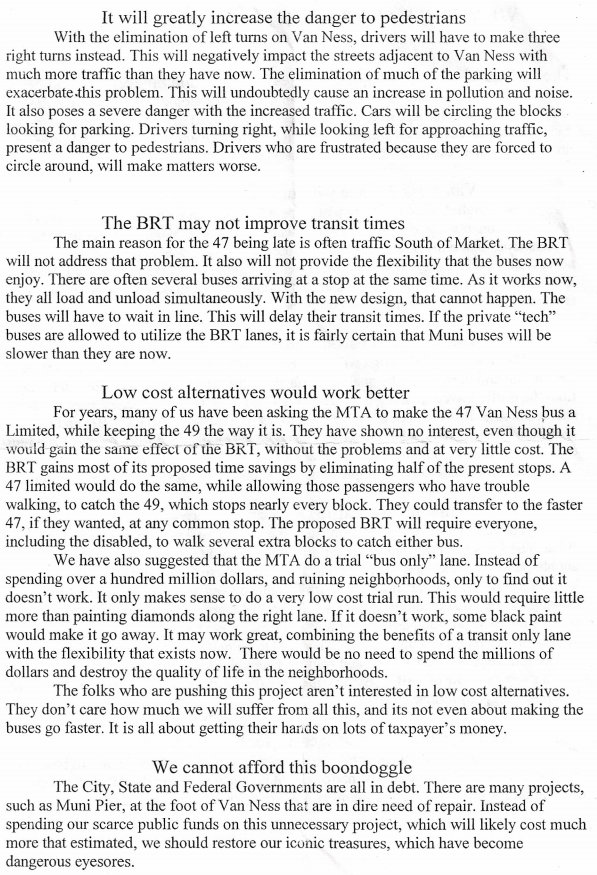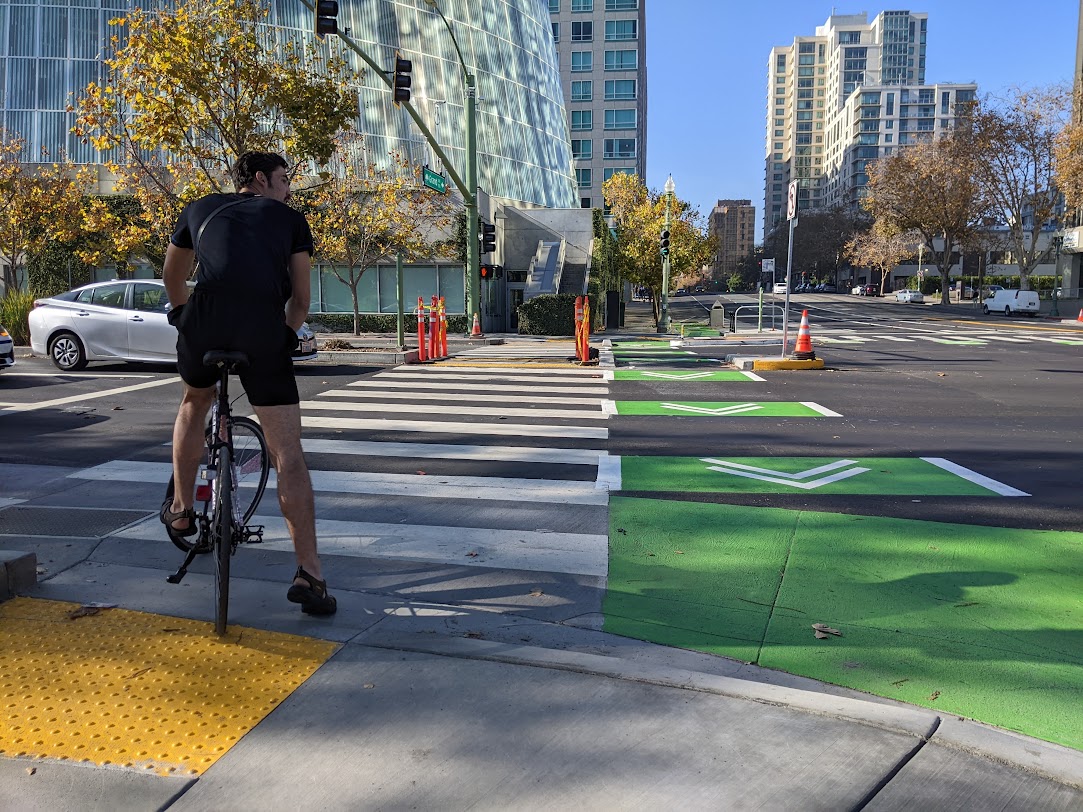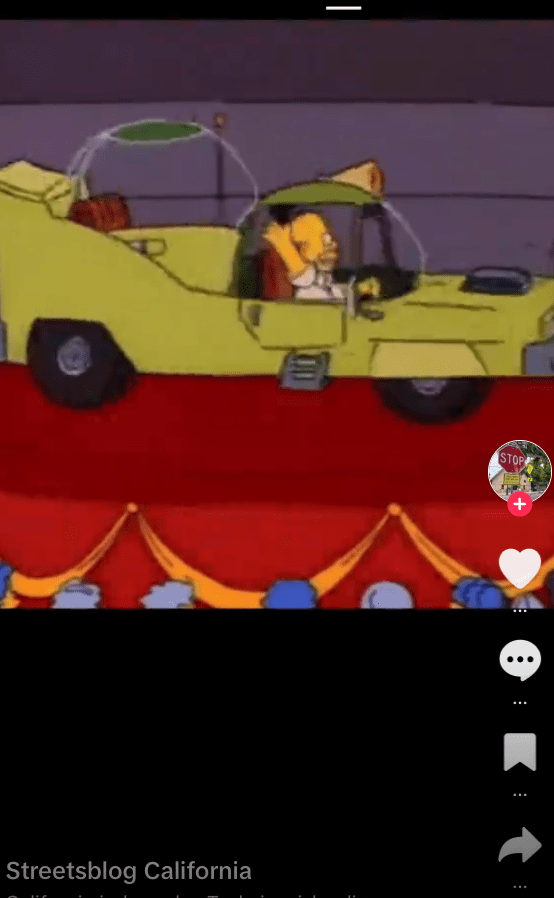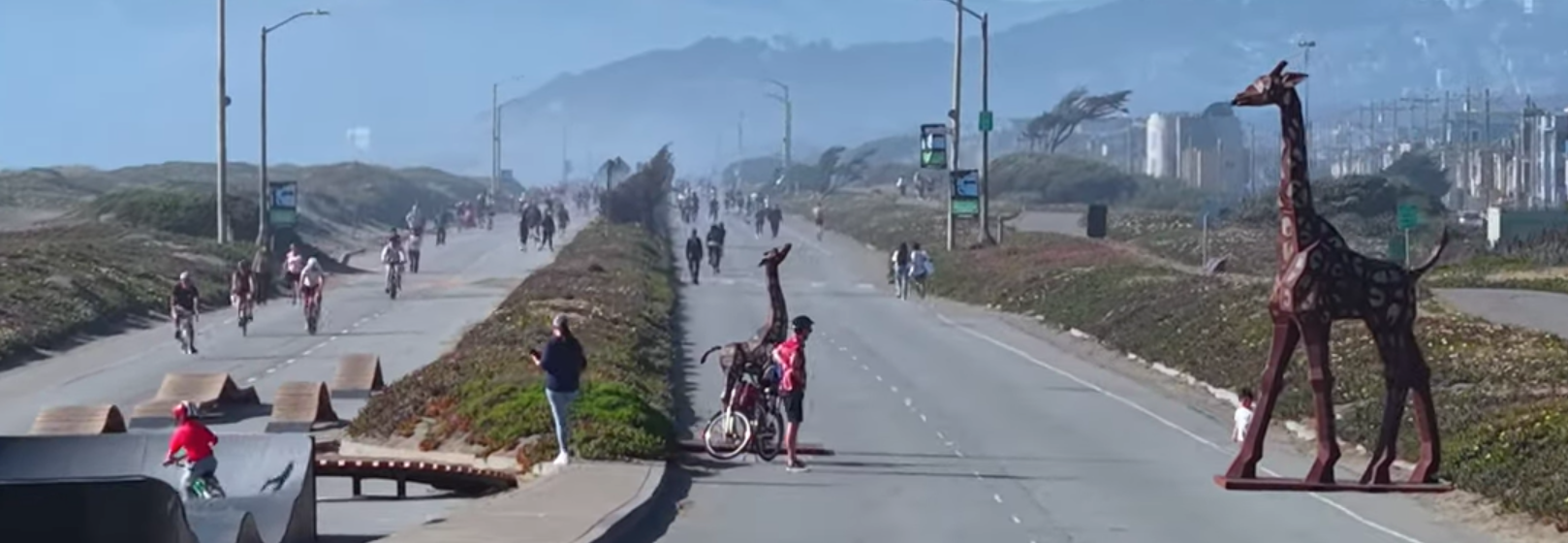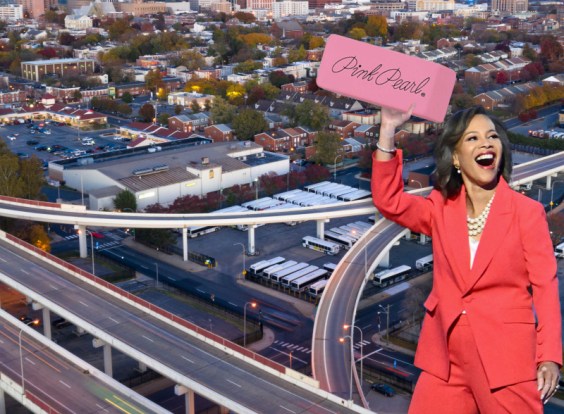"Save Polk Street" has aimed its parking-first agenda at Van Ness Bus Rapid Transit. A couple dozen speakers protested the project an SFMTA hearing last week, distributing fearmongering flyers [PDF] claiming that removing some parking and banning left turns would "kill small businesses," back up car traffic, and make the street more dangerous.
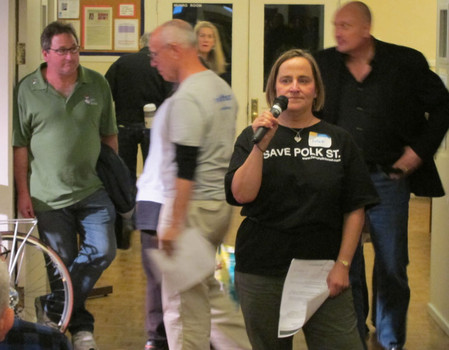
The long-delayed Van Ness BRT project was already approved two years ago by the boards of the SFMTA and the SF County Transportation Authority. Last week's hearing was on specific street changes [PDF], like removing parking for station platforms and pedestrian bulb-outs. No action was taken by the hearing officers, but the street changes are expected to go to the SFMTA Board of Directors for approval in October.
The speakers and the fliers distributed weren't explicitly associated with Save Polk Street, but many of the same faces and familiar inflammatory rhetoric could be found at the hearing.
Dawn Trennert of the Middle Polk Neighborhood Association, who has been seen at past meetings wearing a "Save Polk St." t-shirt, spoke at the Van Ness hearing and echoed many of the same refrains calling for the preservation of parking and unfettered car movement.
"Many of our members have expressed extreme concern over the Van Ness BRT, and how it will impact our neighborhood, because they can't park on Van Ness, and they're used to parking on Van Ness, because they need to make left-hand turns, and they can't do it on Van Ness to visit the nearby streets like Polk Street," said Trennert. "Polk Street is faced with its own very grave issues with splitting up portions of Polk for bicycle use only, reducing parking on Polk."
Save Polk Street, a group of car-obsessed merchants, successfully watered down plans for protected bike lanes on Polk in favor of preserving parking. The group has ignored statistics -- like SFMTA studies showing that 85 percent of people arrive on Polk without a car, or a count of 4,300 parking spaces within a block of Polk between Union and McAllister Streets. Only 1,900 of those parking spaces are on-street, and on-street spaces along Polk and Van Ness make up a fraction of the total.
Most of the complaints about Van Ness BRT were about removing parking and banning left turns, and claimed that transit doesn't need the estimated 30 percent speed increase. Some also complained about removing five of 16 bus stops to streamline the route.
One woman said the project will "invite vagrants to sleep in my neighborhood underneath the bus shelters," although this is not currently a problem at the existing bus shelters. The buses on Muni's 47 route "are perfect now, they're fine," she said.
Speakers also denied findings that parking occupancy on Van Ness was underutilized much of the time, and forecast a double-parking disaster when two of Van Ness' six traffic lanes are reserved for BRT. Critics also said that banning left turns would create car congestion on Polk, as drivers would have to make three right turns instead. One man, echoing the flyer, said that doing so could also endanger pedestrians in crosswalks.
That ignores that left turns are the single greatest factor in pedestrian injuries on deadly Van Ness, according to the Planning Department's WalkFirst website. "One-quarter of pedestrians injured in San Francisco are hit by a left-turning vehicle, over twice the proportion of people injured by vehicles turning right (10%)," it says. The hearing agenda included a proposal to create separate right-turn signal phases at nine Van Ness intersections, separating turning vehicles from pedestrians, as well as bulb-outs. The reduction in traffic lanes is also expected to calm traffic.
At the top of the anonymous anti-BRT flyer [PDF] is a claim that BRT construction -- phased over two years -- will kill businesses on Van Ness, just like the 13-year construction of the BART and Muni metro subway hurt mid-Market (though the flier erroneously refers to "Upper Market").
It also says that the shift in traffic lanes around boarding islands, resembling those on Market and similar streets, will be a dangerous "wiggle," and likens these deflections to the "S-curve" that was built for the Oakland approach to the Bay Bridge during construction of the new eastern span. The S-curve received major media attention in 2009 after a truck drove off of the ramp into the Bay.
The changes at the hearing are expected to be approved at an SFMTA Board hearing on October 7.
